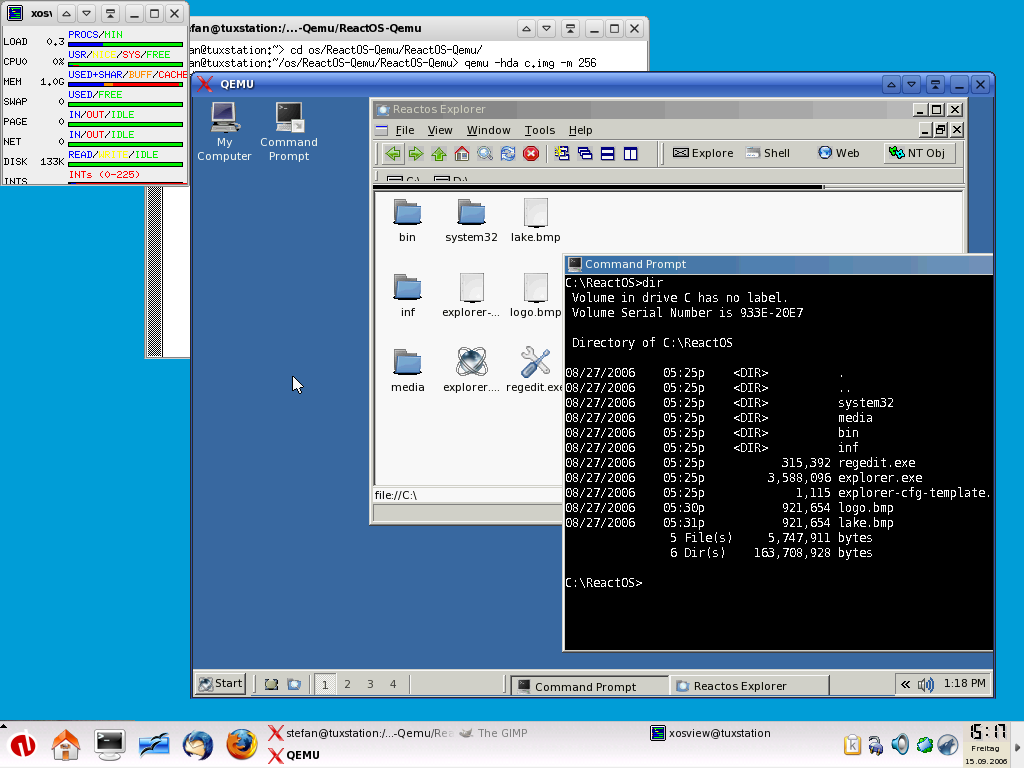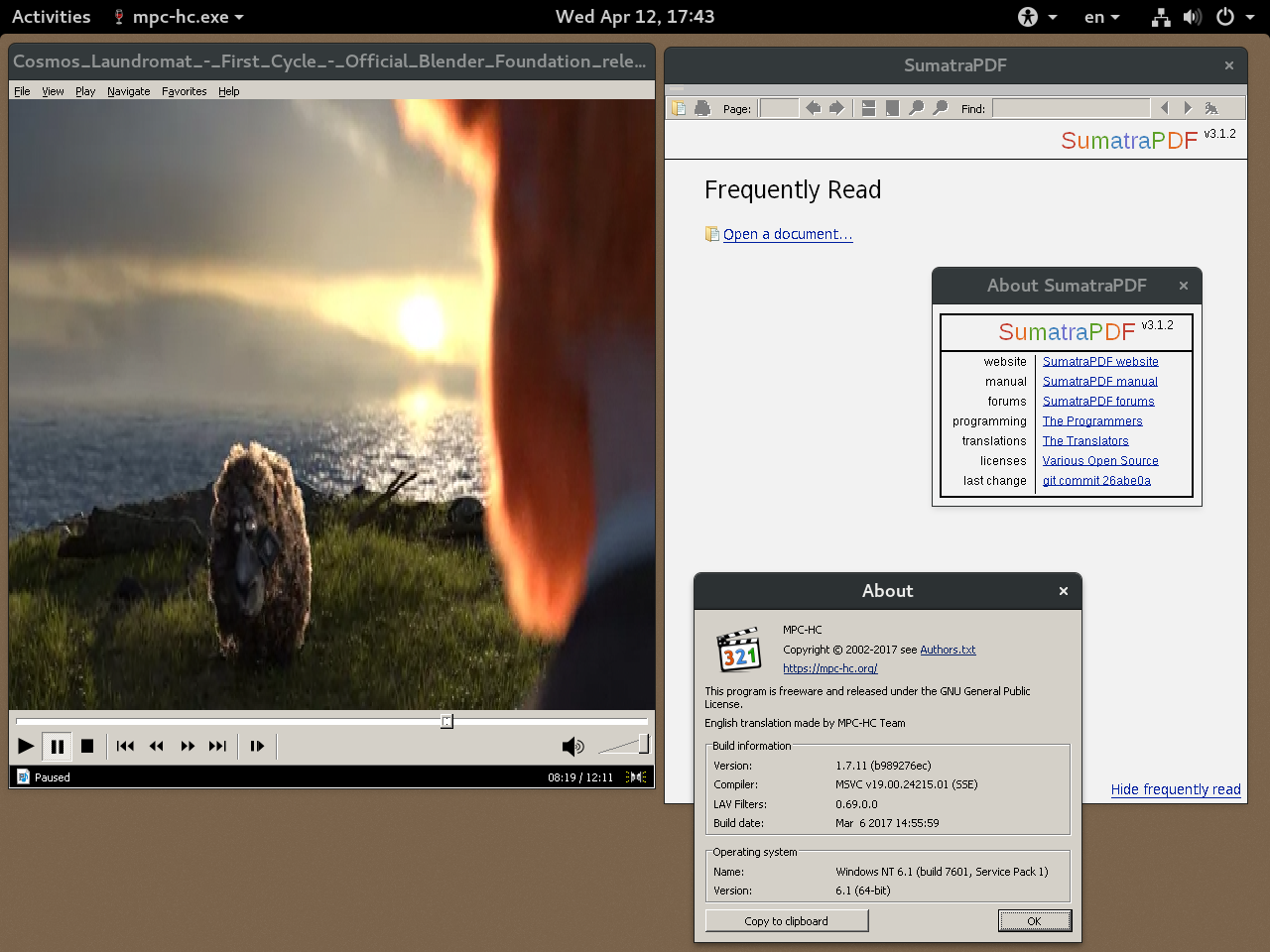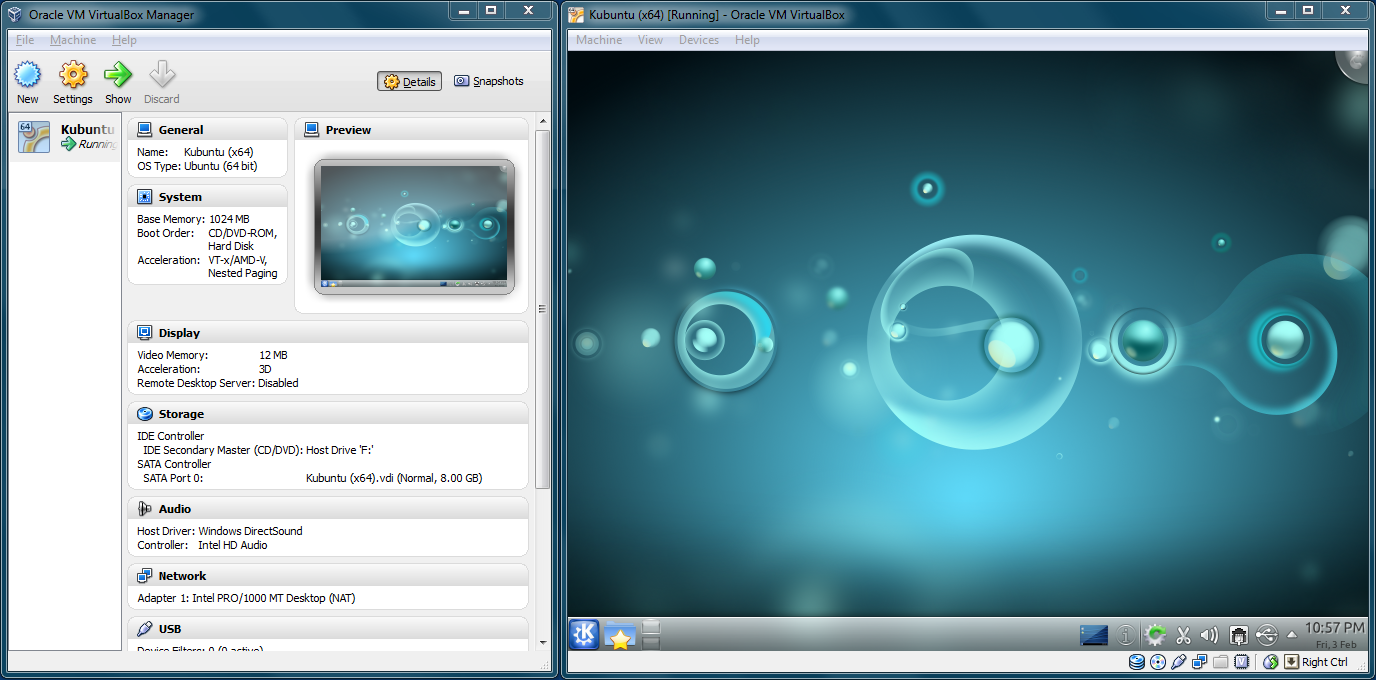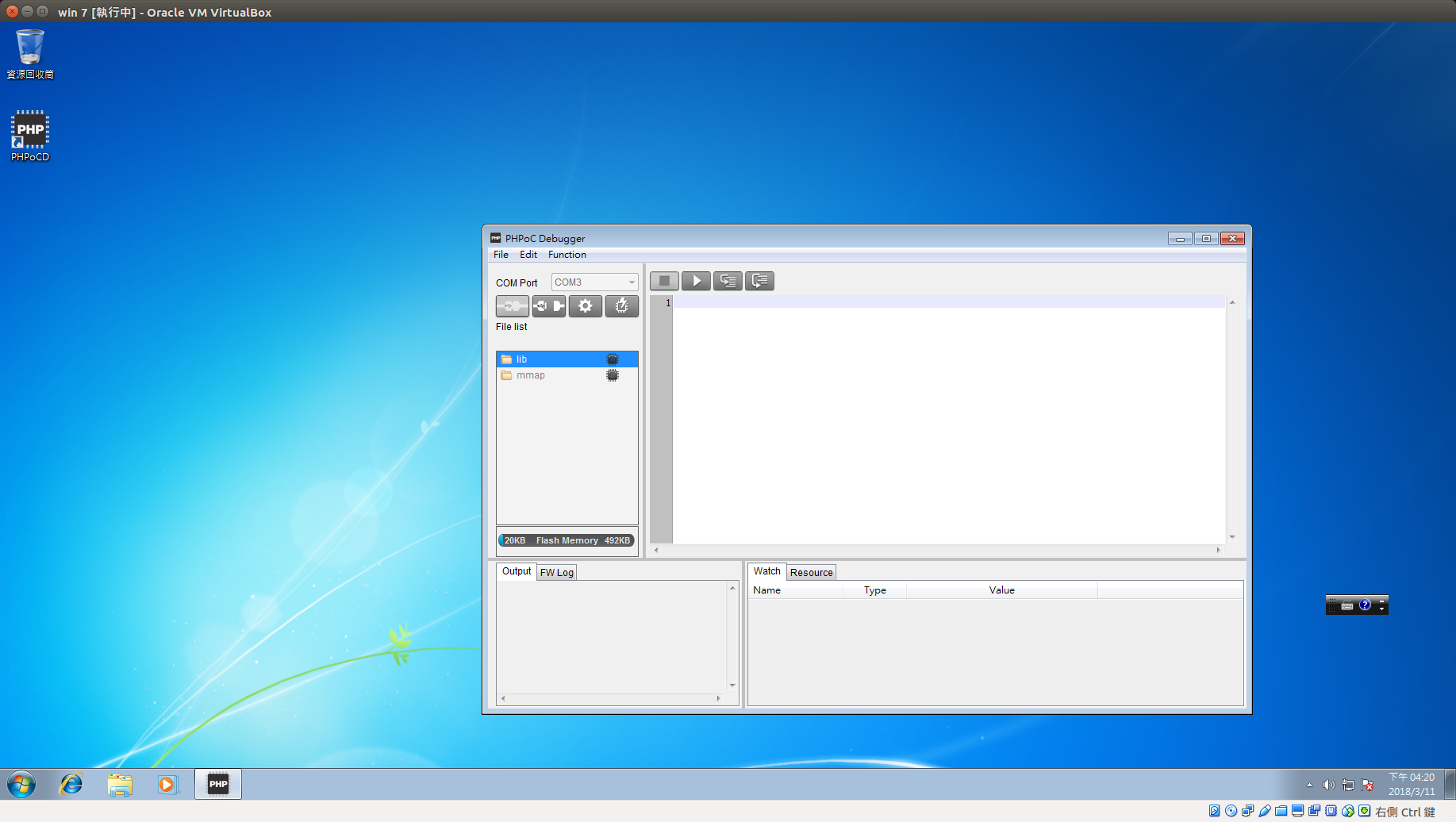雖然今天計算機應用的發展環境不再那麼受限於
‧ 『CPU』是 X86 、 ARM 、uP …
‧ 『OS』是 Window 、 Linux 、 Embeded …
總有足與不足之時!?由其是跨平台的軟件工具之有無?!
故會逢用到『模擬器』之處︰
QEMU
QEMU (short for Quick Emulator[citation needed]) is a free and open-source hosted hypervisor that performs hardware virtualization (not to be confused with hardware-assisted virtualization).
QEMU is a hosted virtual machine monitor: it emulates CPUs through dynamic binary translation and provides a set of device models, enabling it to run a variety of unmodified guest operating systems. It also can be used with KVM to run virtual machines at near-native speed (requiring hardware virtualization extensions on x86 machines). QEMU can also do CPU emulation for user-level processes, allowing applications compiled for one architecture to run on another.

The free operating system ReactOS running within QEMU, which runs as a process on Linux
行須達『作業平台』程式之際︰
Wine (software)
Wine (recursive backronym for Wine Is Not an Emulator) is a free and open-source compatibility layer that aims to allow computer programs (application software and computer games) developed for Microsoft Windows to run on Unix-like operating systems. Wine also provides a software library, known as Winelib, against which developers can compile Windows applications to help port them to Unix-like systems.[9]
Wine emulates the Windows runtime environment by translating Windows system calls into POSIX-compliant system calls,[10] recreating the directory structure of Windows systems, and providing alternative implementations of Windows system libraries,[11] system services through wineserver[12] and various other components (such as Internet Explorer, the Windows Registry Editor,[13] and msiexec[14]). Wine is predominantly written using black-box testing reverse-engineering, to avoid copyright issues.[15]
The name Wine initially was an abbreviation for Windows Emulator.[16] Wine later shifted to the recursive backronym Wine Is Not an Emulator in order to differentiate the software from CPU emulators.[17] No code emulation or virtualization occurs when running a Windows application under Wine.[18] “Emulation” usually would refer to execution of compiled code intended for one processor (such as x86) byinterpreting/recompiling software running on a different processor (such as PowerPC). While the name sometimes appears in the forms WINE and wine, the project developers have agreed to standardize on the formWine.[19]
In a 2007 survey by desktoplinux.com of 38,500 Linux desktop users, 31.5% of respondents reported using Wine to run Windows applications.[20] This plurality was larger than all x86 virtualization programs combined, as well as larger than the 27.9% who reported not running Windows applications.[21]

WINE v2.0.5 running Sumatra PDF and Media Player Classic on Fedora
UP Board 基於 X86 CPU ,畢竟選項比較多哩!
早先接觸它之因便是考慮借
VirtualBox
Oracle VM VirtualBox (formerly Sun VirtualBox, Sun xVM VirtualBox and Innotek VirtualBox) is a free and open-source hypervisor for x86 computers currently being developed by Oracle Corporation. Developed initially by Innotek GmbH, it was acquired by Sun Microsystems in 2008 which was in turn acquired by Oracle in 2010.
VirtualBox may be installed on a number of host operating systems, including: Linux, macOS, Windows, Solaris, and OpenSolaris. There are also ports to FreeBSD[5] and Genode.[6]
It supports the creation and management of guest virtual machines running versions and derivations of Windows, Linux, BSD, OS/2, Solaris, Haiku, OSx86 and others,[7] and limited virtualization of macOSguests on Apple hardware.[8][9]
For some guest operating systems, a “Guest Additions” package of device drivers and system applications is available[10][11] which typically improves performance, especially of graphics.[12]

Running Kubuntu Live CD with Oracle VM VirtualBox on Windows 7
打造便宜的 PHPoC 寫碼電腦呦。
What is PHPoC Debugger?
PHPoC Debugger
PHPoC Debugger is a software used for development and management of PHPoC Products. It is requried to install this program before using PHPoC.
Features of PHPoC Debugger
- Upload files from local PC to PHPoC
- Save files which are in PHPoC to local PC
- Edit files stored in PHPoC
- Debug PHPoC scripts
- Monitor PHPoC’s resources
- Configure PHPoC’s parameters
- Upgrade Firmware of PHPoC
- Support Platform: MS Windows
